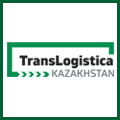The International Union of Marine Insurers (IUMI) has released a position paper titled Arctic Sailings which highlights the non-existence of historical loss data in the area - a key factor when assessing a risk for insurance coverage.
“Consequently, insurers are likely to take a cautious approach when assessing the risk of sailings in the Arctic,” states the paper. In the foreseeable future, marine insurers will continue to assess Arctic voyages on a case-by-case basis, with designated areas remaining either exempt from ordinary insurance cover or undertaken on conditional terms.
The lack of infrastructure and ability to bring the vessel back to a place where repairs can be performed increases the risk of sailing in the Arctic. Even a small engine failure can result in a large claim due to the remoteness of the region. This challenge does not change with the Polar Code, states the IUMI. Harsh and fast-changing conditions with less reliable ice and weather forecasts, restricted visibility up to 90 percent of the time, insufficient charts based on inadequate and old surveys, unreliable positioning systems and compasses in high latitudes, drifting sea and icebergs, inadequate training of the crew and limited access to communication links and search and rescue facilities add to this risk.
A crucial factor in the risk assessment process will be the Polar Ship Certificate. This categorizes a vessel in accordance with its design and ability to operate in certain polar conditions as provided in the Polar Water Operational Manual. Preparedness and planning are other key elements in the risk assessment.
In the coming years, more traffic related to energy, fisheries and destination cruises is to be expected. Over time, this will gradually provide marine insurers with more statistical data to assist in the risk assessment. Going forward, the IUMI:
• Supports the implementation of the Polar Code through further guidance, requirements and performance standards.
• Supports the urgent consideration for an instrument to address non-SOLAS vessels operating in polar waters.
• Strongly encourages an improved infrastructure in Arctic waters to provide necessary rescue capacity and places of refuge.
• Encourages more surveys to produce increasingly reliable charts.
• Participates in the Arctic Shipping Best Practice Information Forum responsible for an information web portal to support implementation of the Polar Code.
The Maritime Executive




.jpg)






